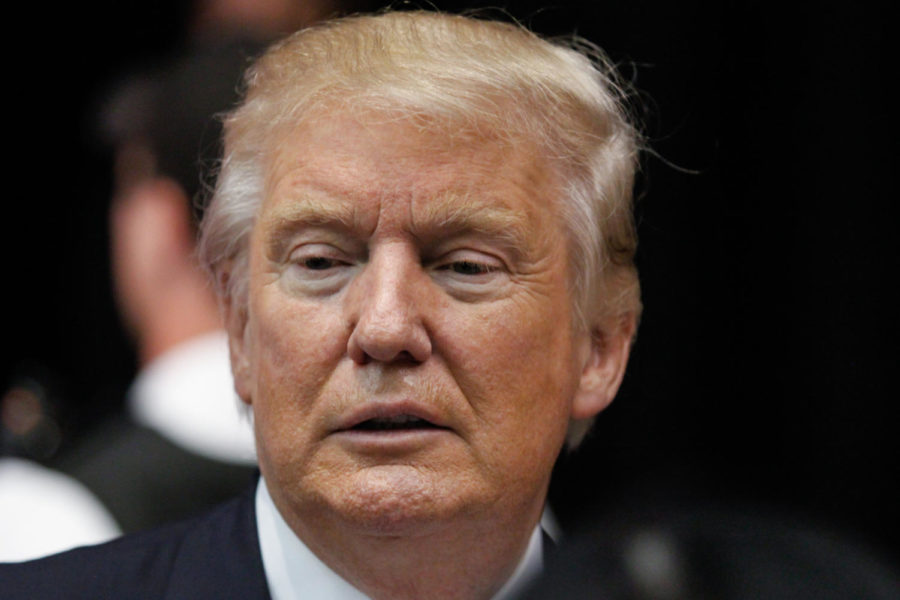Trump signs new travel ban, exempts Iraq
March 6, 2017
President Donald Trump signed another executive order on Monday that would bar immigrants from entering the United States from six Muslim-majority countries.
It has been nearly six weeks since Trump’s previous travel ban was blocked and ruled unconstitutional by a Federal Circuit Court, after it was decided that the ban would discriminate against applicants based on their religious affiliation.
However, due to backlash and confusion that followed the announcement of the previous ban, the Trump administration revised ban features to be more clear.
Iraq has been removed
There have been increased lobbying efforts in the last three weeks by Iraqi officials.
This includes private phone calls and meetings between Trump, Vice President Mike Pence and the Iraqi Prime Minister Haider al-Abadi. Iraq has been removed from the bill.
Secretary of State Rex Tillerson, as well as other U.S. Government officials, initially expressed concerns over Iraq’s placement on the original ban due to “diplomatic reasons.”
According to CNN, in speaking about the ban’s effect on the United States, Attorney General Jeff Sessions said on Monday, “The United States welcomes this kind of close cooperation. This revised order will bolster the security of the United States and our allies.”
However, Libya, Syria, Iran, Somalia, Sudan and Yemen will still be subjugated to the 90-day ban, while refugees will be barred from entering the United States for up to 120 days. Syria will no longer have an indefinite ban on its citizens’ ability to enter the United States.
Visa holders and green cards
Travelers holding U.S. visas and green cards, who are legal residents of the United States, were met with uncertainty on whether they were included in the initial ban.
This confusion reached a climax at airports during the rollout of the previous travel ban.
Many travelers using the documents were detained in the airport or were refused entry into the United States, sparking individuals and groups, such as the American Civil Liberties Union (ACLU), to sue the federal government on their behalf.
Under the revised ban, green card and visa holders from the six countries will be admitted into the country.
Although Monday’s unveiling of the travel ban did not include as much attention as the first one, Republicans and Democrats were still at odds over the bill’s functionality.
While many members of Trump’s cabinet praised the bill, many Democrats are still calling the bill a religious test and calling for its repeal.
In a tweet sent out minutes after the new ban was announced, Rep. Andre Carlson, D-Indiana, said, “Here we go again … Muslim Ban 2.0 #NoBanNoWall.”
In a statement to the press, Rep. Adam Schiff, top Democrat on the House intelligence committee, said the ban “has the same fundamental flaws” as the previous order.
“We [the United States] know that country of origin is a poor predictor of a propensity to commit acts of terror,” Schiff said. “If it were, Pakistan has been a far more problematic source of attack planning and would be at the top of the president’s list, but that country merits not even a mention in the order.”
Trump said the new immigration order is expected to go into effect March 16, giving the administration time to phase in its implementation.

















